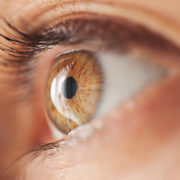Getting to Know the Retina

When people think about the eyes, there is usually little thought given to the fact that this part of the body has several working parts. Each part of the eye is integral to good vision. Each may be susceptible to certain injuries or conditions. As retinal specialists dedicated to providing outstanding care, one of the ways we help our patients understand their unique conditions better is to also discuss the details of the retina. Here, we look at a few important details you should know.
What is the retina?
The retina is a thin piece of light-sensitive tissue at the back of the eye. It is part of the eye that receives light and then converts it into a neural signal. This is then delivered to the optic nerve attached to the retina. The optic nerve transfers the neural signal to the brain, where signals are interpreted to form an image.
The retina is very small; less than one inch in diameter. It is approximately half a millimeter thick, and yet it contains about 200 million neurons. As small as the retina is, this piece of tissue has various parts that are involved in visual functions. For example, the macula, the central part of the retina, controls central vision. The macula enables us to visualize fine details, see color, read, recognize faces, and more.
What are the common retina problems?
Being so thin, the retina is relatively delicate. It may be affected by a variety of factors, leading to problems and conditions such as:
- Tears, holes, and detachments. These problems may occur if the retina is tugged away from the back of the eye or is damaged by trauma.
- Age-related macular degeneration is a condition in which the macula deteriorates over time.
- Diabetic retinopathy is a common problem that affects people with diabetes. Because diabetic retinopathy could cause vision loss, it is vital that diabetic patients receive annual ophthalmic exams.
Retinal problems may cause subtle symptoms that can be mistaken for age-related changes to vision. The following should be assessed by an ophthalmologist:
- Peripheral vision loss
- Double vision
- Vision distortions such as waves
- Dimmed vision
- Flashing lights
- Sudden and severe floaters
A retinal specialist utilizes several techniques and screenings to diagnose the cause of visual symptoms. If you believe you may be at risk of a retinal condition, contact us at (855) 515-2020. Retina Consultants of Minnesota has offices in Minneapolis, St. Paul, and more to serve you.

